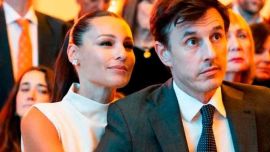After confirming Roberto Lavanga's intention to run as a candidate in the 2019 presidential elections against President Mauricio Macri, former president Eduardo Duhalde has dropped a bomb: Lavanga, who had always been close to dissident Peronist leader Sergio Massa and his Renewal Front movement, "is no longer part of that front".
Duhalde's comments come amid calls for Argentina's opposition to move toward building a broad political pact aimed at lifting the country from its current political and economic stagnation.
Earlier this month, Massa's political front released a 14-point economic proposal with ideas about how to nudge Argentina out of its crisis. The report had been put together by Aldo Pignanelli, Ignacio de Mendiguren, Matías Tombolini and Marco Lavanga. Many see the plan as belonging to Roberto Lavanga given statements he has made off the record to journalists and politicians from a number of political fronts.
The relationship between Lavanga, former Economy minister, and Massa, Cristina Fernández de Kirchner's former Cabinet Chief, has been well documented. Noticias magazine recently published a piece that revealed Massa had taken economics classes with Lavanga.
Duhalde's comments were supported by Alfonsín, in a long conversation given to Perfil.com about Argentine politics in which both were critical of Mauricio Macri's failure to secure broad political consensus. They cited his lack of experience.
However, questions and electoral speculation remain. What sort of front would accompany the Lavanga ticket, if that candidate is clearly able to take votes from Peronists who oppose former president Cristina Fernández de Kirchner, "dissident" Radicalism (Radical voters who do not respond to the ruling Cambiemos coalition of which their party is a member), and disillusioned Cambiemos voters?
For his part, Alfonsín said the UCR Radical Party cannot be underestimated. Duhalde insisted that the front could neither include dishonest candidates, apparently referencing Kirchnerites; nor the inexperienced, in reference to Macri's PRO party.
Both agreed the pact would have to be based on political capacity, or in other words candidates' ability to push a series of reforms through Congress to lift Argentina from its current crisis.



















Comments